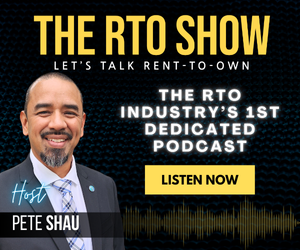Contributed by APRO member C. Keith Carrico, SHRM-SCP SHRM Senior Certified Professional, Human Resources Director of SKC Enterprises, Inc.
 It’s tax time again! Everyone is experiencing the joy of either navigating tax software or heading to the nearest mall or shopping center tax professional. A good time was had by…none?
Supposing we all make it through this tax season, next year’s will be more interesting. The 2018 Tax Cuts and Jobs Act passed by Congress and signed by president Trump has made some significant changes to the tax code.
The Government is pretty shrewd in how it collects what it likes to refer to as “investments” by the US citizenry. I remember submitting my quarterly tax filings when I had a consulting business. Writing a substantial tax check to federal and state tax agencies every three months will focus the mind on how much in taxes our various agencies consume.
However, from an employee’s perspective, they tend to focus on the bottom-line or net pay number. The various acronyms of taxation like FIT, SIT, OASDI, MEDI; can get lost in the mix for them. I’m not a tax professional, but having been in the human resources field for over 20 years, I can assure you that taxes are a hot-button issue for employees.
I did some analysis of pay changes that the law will have by comparing actual checks from before the tax change to what will happen in 2018. You can bet someone making $10 per hour, will notice an extra $13 or $14 each paycheck. For a store manager making an annual salary $55,000, taking home an extra $1000 a year will really be noticed and appreciated.
According to a 2017 survey, 39% of Americans have $0 in savings. By keeping more hard-earned income and putting this in savings, the new tax law may protect many from an emergency that could cause them serious economic harm. Or in a more personal way, the 2018 Tax Cuts and Jobs Act could mean they get to take a vacation this year or go out to dinner more often in 2018.
On a more macro level, I believe the new tax law will have a significant impact on our communities. In 2017, the coworkers of all three of our companies had a total of $1.65 million in federal income tax withheld from their pay. Assuming 19% of that is no longer withheld due to new tax tables means our coworkers and their communities will have an influx of over $300,000 to improve economic conditions and make each individual life a little better. As for companies, some of that money is already being shown to end up in bonuses and pay raises.
$13 or $14 more each payday might not sound like much to some of us, but to someone struggling with their finances, it might be the difference that allows them to start to save for their future.
In the final analysis, whose money is it anyway?
It’s tax time again! Everyone is experiencing the joy of either navigating tax software or heading to the nearest mall or shopping center tax professional. A good time was had by…none?
Supposing we all make it through this tax season, next year’s will be more interesting. The 2018 Tax Cuts and Jobs Act passed by Congress and signed by president Trump has made some significant changes to the tax code.
The Government is pretty shrewd in how it collects what it likes to refer to as “investments” by the US citizenry. I remember submitting my quarterly tax filings when I had a consulting business. Writing a substantial tax check to federal and state tax agencies every three months will focus the mind on how much in taxes our various agencies consume.
However, from an employee’s perspective, they tend to focus on the bottom-line or net pay number. The various acronyms of taxation like FIT, SIT, OASDI, MEDI; can get lost in the mix for them. I’m not a tax professional, but having been in the human resources field for over 20 years, I can assure you that taxes are a hot-button issue for employees.
I did some analysis of pay changes that the law will have by comparing actual checks from before the tax change to what will happen in 2018. You can bet someone making $10 per hour, will notice an extra $13 or $14 each paycheck. For a store manager making an annual salary $55,000, taking home an extra $1000 a year will really be noticed and appreciated.
According to a 2017 survey, 39% of Americans have $0 in savings. By keeping more hard-earned income and putting this in savings, the new tax law may protect many from an emergency that could cause them serious economic harm. Or in a more personal way, the 2018 Tax Cuts and Jobs Act could mean they get to take a vacation this year or go out to dinner more often in 2018.
On a more macro level, I believe the new tax law will have a significant impact on our communities. In 2017, the coworkers of all three of our companies had a total of $1.65 million in federal income tax withheld from their pay. Assuming 19% of that is no longer withheld due to new tax tables means our coworkers and their communities will have an influx of over $300,000 to improve economic conditions and make each individual life a little better. As for companies, some of that money is already being shown to end up in bonuses and pay raises.
$13 or $14 more each payday might not sound like much to some of us, but to someone struggling with their finances, it might be the difference that allows them to start to save for their future.
In the final analysis, whose money is it anyway? 









